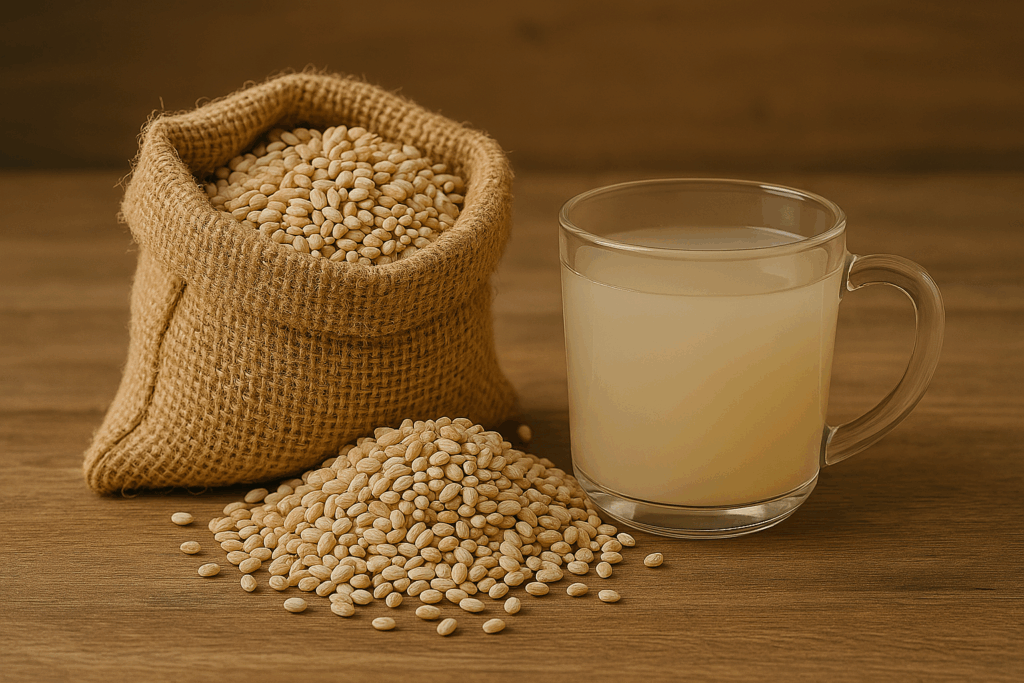
by Dr Rahim Said
For generations, traditional societies have turned to nature’s pantry to ease ailments long before the advent of modern clinics and pharmaceutical shelves.
In Malay households, particularly in kampungs where access to medical care was once limited, such wisdom was preserved through oral tradition and kitchen remedies.
One such practice, now quietly making a modest comeback among those wary of chemical-laden treatments, is a herbal brew reputed to calm the kidneys and steady overactive bladders.
It began, as these stories often do, with a Pak Cik who found himself waking four or five times a night to relieve himself. The urine was dark, foamy, and bore the tell-tale signs of a body under strain. A clinical check confirmed the inevitable: the early rumblings of kidney dysfunction and creeping hypertension.
But rather than relying solely on prescriptions, his elderly mother reached for what she knew — a simple concoction of lemongrass, pandan leaf, and barley simmered in water.
Interestingly, barley has held a long-standing place not just in Malay but also in Chinese traditional medicine. Barley water has been prescribed for centuries by Chinese herbalists as a mild diuretic and a cooling agent to detoxify the body, reduce internal heat, and support kidney function.
Ancient texts and contemporary practitioners alike advocate barley water for soothing urinary tract issues and aiding in the gentle cleansing of the kidneys — a practice not unlike its Malay counterpart, albeit sometimes paired with other herbs like winter melon or dried longan.
In this particular kampung recipe, two stalks of lemongrass are lightly crushed, a pandan leaf knotted for fragrance and flavour, and a tablespoon of barley added to about one and a half glasses of water.
The ingredients are simmered for 15 minutes, resulting in a brew both aromatic and subtly sweet, often taken warm in the morning and evening. Traditional wisdom advises against adding refined sugar, suggesting instead a touch of pure honey if needed.
The rationale is both simple and rooted in an intuitive understanding of the body’s needs. Barley acts to filter the kidneys, helping flush out excess acids and toxins.
Lemongrass and pandan leaves soothe the internal organs, promoting a smoother flow of urine and reducing the stress placed on the kidneys and bladder. Regular consumption, kampung elders believe, helps to stabilise urine pH and ease the burden on fatigued kidneys.
Within a week, the Pak Cik reported fewer nighttime disruptions, with the once-foamy urine returning to a clearer, healthier state. Sleep improved, and so too did his blood pressure readings.
Though no one claims this as a miracle cure, it serves as a gentle reminder that prevention and daily care often reside in the simplest practices.
This quiet revival of old remedies mirrors a growing awareness globally. Even in modern urban kitchens, barley water is finding its place again, featured in wellness blogs and herbal health guides advocating natural approaches to managing early symptoms of kidney strain and urinary discomfort. What was once dismissed as old wives’ tales is being re-examined under the light of holistic well-being.
While such remedies should never replace professional medical advice, they represent the gentle, nurturing habits of a generation that understood health as a daily ritual, not a crisis to be addressed only when symptoms screamed.
In a world rediscovering the value of plant-based therapies, this modest brew — barley, lemongrass, and pandan — carries the quiet wisdom of the past into the present.
(The views of the writer are entirely his own)
WE